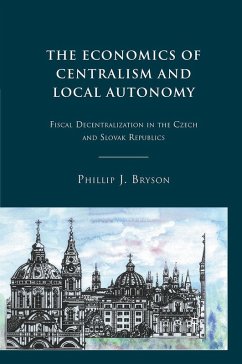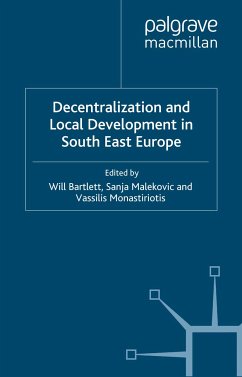Dieser Download kann aus rechtlichen Gründen nur mit Rechnungsadresse in A, B, BG, CY, CZ, D, DK, EW, E, FIN, F, GR, HR, H, IRL, I, LT, L, LR, M, NL, PL, P, R, S, SLO, SK ausgeliefert werden.
"This book makes valuable contributions to comparative economics, to the understanding of regional decentralization of government functions and to our understanding of the process of transition in Central Europe. Bryson s description and analysis of the difficult process of empowering local governments to seek out tax revenues and to provide public services focuses attention on a key, but often neglected, aspect of transition from the communist centralized economy to one with multiple layers of government and of a measure of local autonomy for citizens. The comparison of this process in two countries, the Czech and Slovak Republics is an interesting exercise in comparative economics: both countries started with virtually identical government structures but each faced a different set of problems after the dissolution of Czechoslovakia. Moreover, fiscal decentralization played an important role in shaping democracy and in preparing the countries for EU accession. The field research and case studies on which parts of the book are based bring a sense of immediacy to the analysis, which should be of interest to a broad range of readers." - Josef. C. Brada, Professor of Economics, Arizona State University
"It has been two decades since Central and Eastern European countries started on one of the largest social experiments in history. In this book Philip Bryson offers a vivid and insightful account of the largely successful transition from planned socialism of the Czech and Slovak republics to fiscally decentralized and democratic systems." - Jorge Martinez-Vazquez, Regents Professor of Economics, Andrew Young School, Georgia State University









